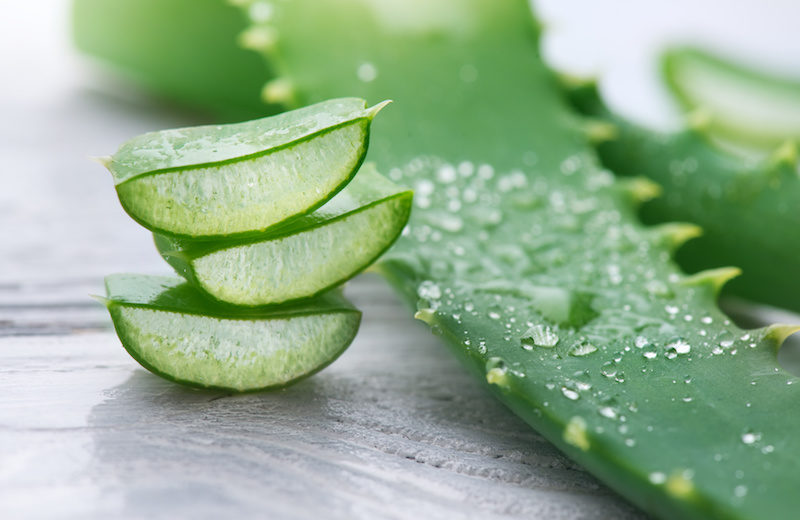The COVID-19 pandemic drove a huge spike in demand for aloe in hand sanitizer in 2020 and generated renewed interest in aloe vera to support immune health. Even more recently, aloe vera went viral on TikTok in early 2022 thanks to everyday social media users sharing their experience consuming aloe vera juice.
Yet, despite the popularity of this widely available and recognizable ingredient, many consumers are unaware of major regulatory developments in the last decade that have threatened the availability of aloe vera products around the world.
Europe
In 2021, the European Union (EU) finalized a proposed regulation that prohibits “preparations from the leaf of Aloe species containing hydroxyanthracene derivatives” from being used in foods and supplements. Hydroxyanthracene derivatives (HADs), in the form of aloin and aloe emodin, are naturally occurring compounds in aloe. The basis for this regulation was a 2018 scientific opinion from the European Food Safety Authority (EFSA) that raised health concerns about HADs in food. This regulation would have severely and, as aloe experts contend, unnecessarily restricted aloe products available in the EU.In response, the International Aloe Science Council (IASC) – together with Food Supplements Europe (FSE), Association of Official Analytical Chemists (AOAC), American Herbal Products Association (AHPA), and a number of other organizations representing consumers and the aloe industry in Europe – fiercely opposed the EU regulation. To challenge the proposed regulation, IASC submitted comprehensive public comments on behalf of its international membership, along with several other prominent associations and companies.
In these comments, IASC identified the organization’s set limit for HADs in products containing aloe vera. IASC aloe vera quality standards define safe limits for consumption, content, and contaminants. In addition, IASC also specified that the EFSA scientific opinion cited data supporting the safety of aloe vera preparations with low levels of HADs, but this information was disregarded during the risk assessment performed by EFSA.
The effort led by the IASC and others resulted in the recognition of a threshold limit of <1 parts per million (ppm) for aloin and aloe emodin in foods and supplements, a condition met by IASC-certified products. As a result, aloe drinks and supplements are still readily available in Europe.
Taiwan
Concerns about HADs did not stop with the EU. Taiwan also recently announced new regulations for some food products containing aloe vera. According to the Taiwanese Food and Drug Administration (Taiwanese FDA), plans are underway for new policies that would regulate the use of aloe in edible products by January 1, 2023.Beginning on January 1, 2023, only properly peeled leaves of aloe vera and aloe ferox could be further processed for use in edible products. In addition, edible products cannot contain more than 10 ppm of the aloin and must include pregnancy warnings on their labels due to studies suggesting that long-term intake of food or supplements containing aloin might be toxic for the liver and kidneys.
In their regulations, the Taiwanese FDA referenced IASC’s recommendation to set the maximum allowable aloin content in edible products to 10 ppm. Expanding on this, IASC submitted a science-based response to Taiwan’s regulations demonstrating the safety of aloin at low levels. Consequently, any products containing less than 1 ppm of aloin will not need the additional warning labels in Taiwan.
United States
Much of the international regulatory attention given to aloe vera stems from U.S. National Toxicology Program (NTP) studies on a test material identified as “non-decolorized whole leaf extract of Aloe barbadensis Miller,” an unpurified aloe vera material. NTP concluded from their studies that this material, which contained high levels of aloin, was carcinogenic in rats after oral administration. IASC consulted with NTP to ensure that the study material was appropriately identified as “non-decolorized” to differentiate it from aloe products available to consumers.Following the release of these NTP studies, the International Agency for Research on Cancer (IARC) issued its cancer classification of “possibly carcinogenic to humans” specific to this unpurified aloe vera test material. In April 2015, it was proposed that “Aloe vera, whole leaf extract” be added to the California Proposition 65 (Prop 65), based on the classification of this material by IARC.
Prop 65 is a list of naturally occurring and synthetic chemicals that are known to cause cancer or birth defects or other reproductive harm. Businesses are required to provide warnings about significant exposure to Prop 65 listed chemicals to consumers in California.
The addition of “Aloe vera, whole leaf extract” to the Prop 65 list could have significantly reduced the availability of aloe vera products in California due to the financial and operational impact to businesses having to add warning labels to their products, points of sale, and marketing materials. There was also the potential for consumers to be unnecessarily frightened of safe aloe vera products because of labels warning of the risk for cancer and reproductive harm.
In response, IASC and other organizations and individuals knowledgeable about aloe vera submitted public comments distinguishing the difference between the test material in the NTP studies and aloe vera used in most consumer products. As a result, the final Prop 65 list announced in December 2015 added the important clarification that the Prop 65-listed aloe vera material is “Aloe vera, non-decolorized whole leaf extract.” This crucial addition of the word “non-decolorized” has ensured that safe aloe vera products remain available in California.
Keeping Aloe Vera Products Safe and Accessible
Thanks in part to its long history of use and synonymity with soothing relief, aloe vera products have maintained a ubiquitous market presence in both mainstream and specialty retail. However, keeping aloe vera products available to everyday consumers in the U.S. and abroad takes strategic, ongoing and largely unseen regulatory efforts by IASC and other industry organizations. Further, not all aloe vera products are created equal.IASC is committed to supporting research on the aloe vera plant and promoting the safety and benefits of aloe vera in beverages, skincare, and many more types of consumer goods. At the heart of this long-established organization is the IASC Certification Program, which guarantees the content and purity of all certified aloe products. Consumers are encouraged to look for the IASC seal to ensure the quality and safety of their aloe products.










